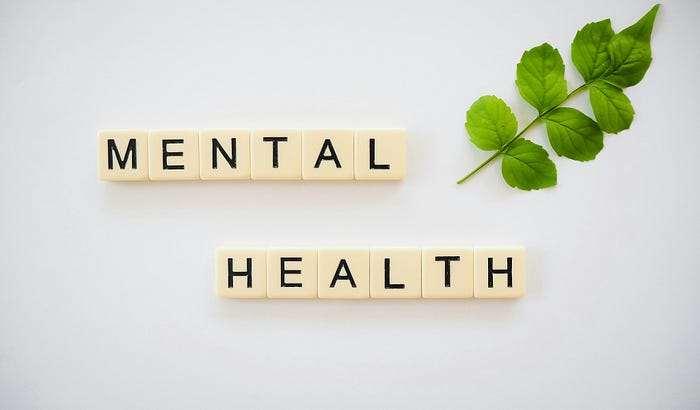Finding balance in and connection with something bigger
Reviewed by Megan MonahanPrint
:max_bytes(150000):strip_icc():format(webp)/balanced-stones-on-a-pebble-beach-875372302-5a91e16bc673350037f6c2ca.jpg)
Table of Contents
Trending VideosClose this video player
0 seconds of 6 secondsVolume 0%
What is spirituality?
Spirituality is a worldview that suggests a dimension to life beyond what we experience on the sensory and physical levels. In practice, this might entail religious or cultural practices and beliefs surrounding a higher being, connection with others and the world as a whole, and/or the pursuit of self-improvement.
Spirituality has been a source of comfort and relief for multitudes of people. Its meaning is highly individual but is often shared and expressed in group activities such as church services and holiday rituals.
Research has linked spirituality with well-being and health in the face of life challenges.1
Signs of Spirituality
Spirituality is not a single path or belief system. There are many ways to experience spirituality and the benefits of a spiritual experience. How you define spirituality will vary. For some people, it’s the belief in a higher power or a specific religious practice.
For others, it may involve experiencing a sense of connection to a higher state or a sense of inter-connectedness with the rest of humanity and nature. Some signs of spirituality can include:
- Asking deep questions about topics such as suffering or what happens after death
- Deepening connections with other people
- Experiencing compassion and empathy for others
- Experiencing feelings of interconnectedness
- Feelings of awe and wonder
- Seeking happiness beyond material possessions or other external rewards
- Seeking meaning and purpose
- Wanting to make the world a better place
Not everyone experiences or expresses spirituality in the same way. Some people may seek spiritual experiences in every aspect of their lives, while others may be more likely to have these feelings under specific conditions or in certain locations.
For example, some people may be more likely to have spiritual experiences in churches or other religious temples, while others might have these feelings when they’re out enjoying nature.
Types of Spirituality
There are many different types of spirituality. Some examples of how people get in touch with their own spirituality include:
- Breathwork
- Meditation or quiet time
- New age spirituality
- Prayer
- Service to their community
- Spending time in nature
- Spiritual retreats
- Yoga
Other people express their spirituality through religious traditions such as:
- Buddhism
- Christianity
- Hinduism
- Humanism
- Islam
- Judaism
- Sikhism
It is important to remember that there are many other spiritual traditions that exist throughout the world, including traditional African and Indigenous spiritual practices. Such spiritual practices can be particularly important to groups of people who have been subjected to the effects of colonialism.
Spirituality vs. Religion
Although spirituality and religion can overlap, here are some key points that differentiate the two.
Spirituality
- Can be practiced individually
- Doesn’t have to adhere to a specific set of rules
- Often focuses on a personal journey of discovering what is meaningful in life
Religion
- Often practiced in a community
- Usually based on a specific set of rules and customs
- Often focuses on the belief in deities or gods, religious texts, and tradition
Uses of Spirituality
People often turn to spirituality to:
- Find purpose and meaning: Exploring spirituality can help people find answers to philosophical questions such as “What is the meaning of life?” and “What purpose does my life serve?”
- Cope with feelings of stress, depression, and anxiety: Spiritual experiences can be helpful when coping with the stresses of life.
- Restore hope and optimism: Spirituality can help people develop a more hopeful outlook on life.
- Find a sense of community and support: Because spiritual traditions often involve organized religions or groups, becoming a part of such a group can serve as an important source of social support.
Tarot, Astrology, and Crystals: Why These Practices Are Helpful to Certain People
The Impact of Spirituality
While specific spiritual views are a matter of faith, research has demonstrated some of the benefits of spirituality and spiritual activity. The results may surprise no one who has found comfort in their religious or spiritual views, but they are definitely noteworthy in that they demonstrate in a scientific way that these activities do have benefits for many people.
The following are a few more of the many positive findings related to spirituality and health:
- Research has shown that religion and spirituality can help people cope with the effects of everyday stress. One study found that everyday spiritual experiences helped older adults better cope with negative feelings, and enhanced positive feelings.2
- Research shows that older women are more grateful to God than older men, and they receive greater stress-buffering health effects due to this gratitude.3
- According to research, those with an intrinsic religious orientation, regardless of gender, exhibited less physiological reactivity toward stress than those with an extrinsic religious orientation.4 Those who were intrinsically oriented dedicated their lives to God or a “higher power,” while the extrinsically oriented ones used religion for external ends like making friends or increasing community social standing.
This, along with other research, demonstrates that there may be tangible and lasting benefits to maintaining involvement with a spiritual community. This involvement, along with the gratitude that can accompany spirituality, can be a buffer against stress and is linked to greater levels of physical health.
Dedication to God or a higher power translated into less stress reactivity, greater feelings of well-being, and ultimately even a decreased fear of death.
People who feel comfortable and comforted using spirituality as a coping mechanism for stress can rest assured that there’s even more evidence that this is a good idea for them. Prayer works for young and old alike. Prayer and spirituality have been linked to:
- Better health
- Greater psychological well-being
- Less depression5
- Less hypertension
- Less stress, even during difficult times6
- More positive feelings
- Superior ability to handle stress
How to Become More Mindful in Your Everyday Life
How to Practice Spirituality
Whether you are rediscovering a forgotten spiritual path, reinforcing your commitment to an already well-established one, or wanting to learn more about spirituality for beginners, there are countless ways to start exploring your spiritual side and help improve your well-being.
Spirituality is a very personal experience, and everyone’s spiritual path may be unique. Research shows, however, that some spiritual stress relief strategies have been helpful to many, regardless of faith.7 Some things you can do to start exploring spirituality include:
- Pay attention to how you are feeling: Part of embracing spirituality means also embracing what it means to be human, both the good and the bad.
- Focus on others: Opening your heart, feeling empathy, and helping others are important aspects of spirituality.
- Meditate: Try spending 10 to 15 minutes each morning engaged in some form of meditation.
- Practice gratitude: Start a gratitude journal and record what you are grateful for each day. This can be a great reminder of what is most important to you and what brings you the greatest happiness.
- Try mindfulness: By becoming more mindful, you can become more aware and appreciative of the present. Mindfulness encourages you to be less judgmental (both of yourself and others) and focus more on the present moment rather than dwelling on the past or future.
Press Play for Advice on Being Human
Hosted by therapist Amy Morin, LCSW, this episode of The Verywell Mind Podcast shares what it means to be ‘wholly human,’ featuring GRAMMY award-winning singer LeAnn Rimes. Click below to listen now.
Follow Now: Apple Podcasts / Spotify / Google Podcasts
Potential Pitfalls
One potential pitfall of spirituality is a phenomenon known as spiritual bypassing. This involves a tendency to use spirituality as a way to avoid or sidestep problems, emotions, or conflicts.
For example, rather than apologizing for some type of emotional wound you have caused someone else, you might bypass the problem by simply excusing it and saying that “everything happens for a reason” or suggesting that the other person just needs to “focus on the positive.”
The Takeaway
Research has noted a link between spirituality and resilience in the face of challenges. Whether this owes to a higher power, a sense of peace, community connection, or some other factor, spirituality may help foster your sense of well-being.




